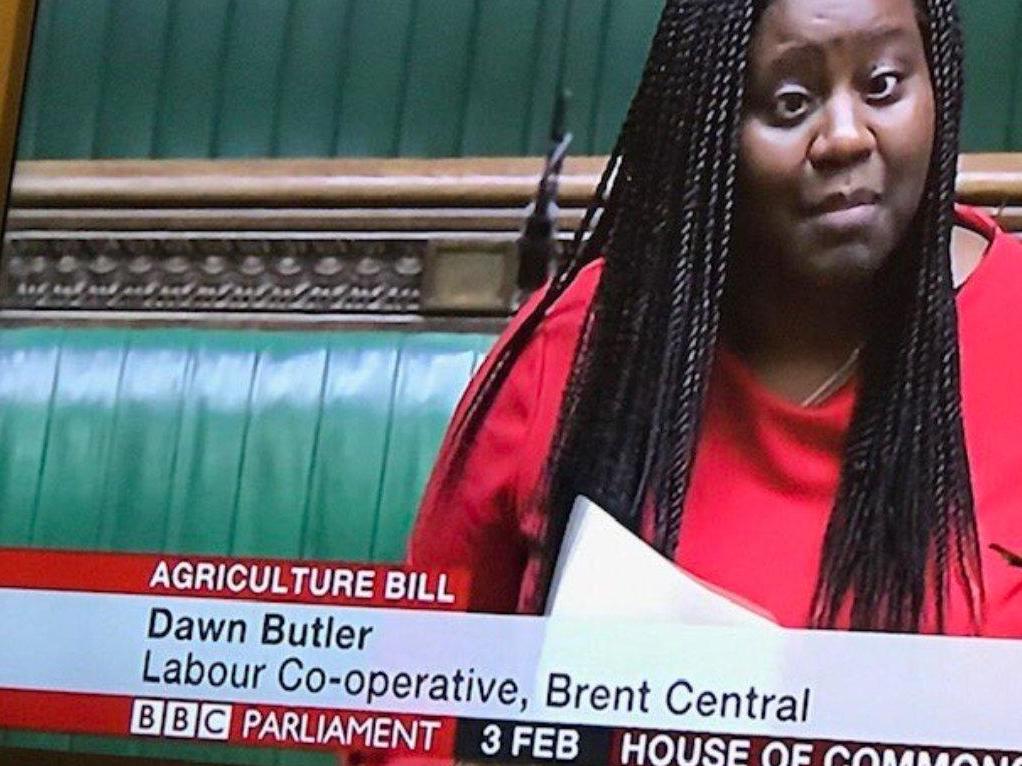The mostly white media has mixed black people up yet again – and I’m not confident this will be the last time
We can’t keep writing off these incidents as ‘honest mistakes’. At this point, it is downright lazy


Your support helps us to tell the story
From reproductive rights to climate change to Big Tech, The Independent is on the ground when the story is developing. Whether it's investigating the financials of Elon Musk's pro-Trump PAC or producing our latest documentary, 'The A Word', which shines a light on the American women fighting for reproductive rights, we know how important it is to parse out the facts from the messaging.
At such a critical moment in US history, we need reporters on the ground. Your donation allows us to keep sending journalists to speak to both sides of the story.
The Independent is trusted by Americans across the entire political spectrum. And unlike many other quality news outlets, we choose not to lock Americans out of our reporting and analysis with paywalls. We believe quality journalism should be available to everyone, paid for by those who can afford it.
Your support makes all the difference.“It’s the other black person you’re looking for…” has been my response whenever I’m routinely mixed up with another black woman by somebody who is just “so embarrassed” at having made such a mistake.
The last time it happened was at an event I attended a little while ago. One of the organisers (a white woman) came up to me and told me very excitedly about how much she loved the Instagram stories I had posted the night before. I stared at her blankly – I hadn’t posted on Instagram in about three days. Of course, when the actual black woman who had posted the hilarious Instagram story arrived, the organiser realised her mistake.
Dawn Butler, Bell Ribeiro-Addy and Marsha de Cordova were the latest to have to issue similar statements. First, to the BBC after it captioned Butler's name on the news while showing her colleague de Cordova talking in parliament, and next when, hours later, Getty images mixed up both Riberio-Addy and de Cordova up too. If that wasn't enough, when the Evening Standard covered the "confusion", it happened again, which the Evening Standard explained as having been caused by Getty's original mistake.
It is just so boring now. I usually dislike speaking on behalf of black people because blackness is not a monolith, however on this occasion, I can confidently say that the majority of the black people I know have gone beyond the point of seething whenever they’re mixed up with someone else who only shares their race. We are tired of this. It clearly doesn't matter whether our shape, size, height, skin tone or hairstyles are even similar – yet the same faux pas prevails. This can no longer be written off as an “honest mistake,” at this point, it is downright lazy.
In this case, those who are belligerent in their ignorance will proclaim with the resonance of a thousand empty spice racks, that there is nothing racist about this mix up because Dawn Butler and Marsha de Cordova both currently have long hair (although Dawn has Locs and Marsha has braids) and just happen to “look similar.” But to say that would mean dismissing a long list of similar "gaffes". Just over a week ago, the BBC announced the death of Kobe Bryant while showing footage of Lebron James. Did they look similar too? There are only so many times society can get away with claiming mere oversight whenever these mix-ups happen.
Eventually, we are just going to have to call this issue what it is. The assumption that all non-white people look alike yet somehow the most similar-looking white people rarely get mixed up by the media, is in fact racist. Stormzy has been mixed up with Lukaku, Idris Elba has been mixed up with Steve McQueen and the list goes on. The problem is so pronounced that I even created a fiction character, known as Sally In HR, to poke fun at the myriad micro-aggressions faced by marginalised communities in the workplace. Sally’s skits are popular online because I make it glaringly obvious through her “honest mistakes” that what we have is an institutional and systemic problem and it can’t be nervously laughed away. Too often, these errors lead to far more serious consequences.
You may recall a case in 2017, when Judah Adunbi, a race relations officer, was tasered in the face by a police officer who mistook him for another black man. It’s horrifying because Adunbi was working with the police to improve community relations at the time. If that isn't a clear example of the dangers of confusing non-white people for one another, I don't know what to tell you. What often operates under the surface of these mix-ups, is the concept of the interchangeable criminality of blackness. In plain terms, the assumption that all black people are alike allows for a type of vilification that is inextricably linked to blackness by white supremacy, which in turn lends itself to other forms of systemic racism such as disproportionate stop and search rates and shocking statistics of black women being five times more likely to die during childbirth than white women.
Everything is connected because it is all based on a fallacy that there is no nuance in blackness. And as long as the media remains overwhelmingly white, and fails to take these issues seriously for more than a few days after the fact, these problems will persist.
In the face of that inaction, I encourage exhausted black people everywhere to use my stock phrase whenever they’re met with the same ignorance. If nothing else, it will mean that individuals perpetuating this worn-out “mistake,” will have to face up to their own unchecked bias sooner or later.
Join our commenting forum
Join thought-provoking conversations, follow other Independent readers and see their replies
0Comments